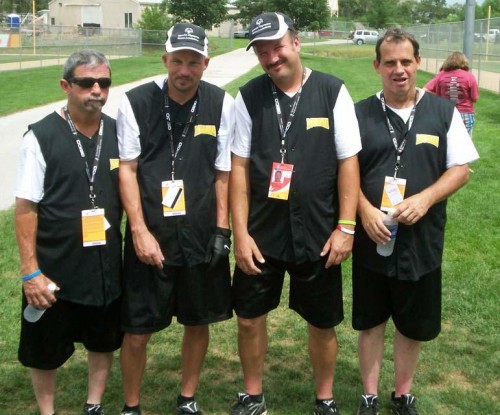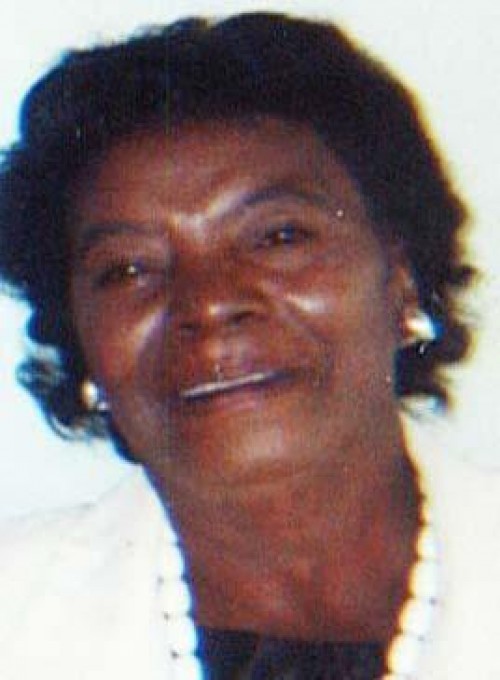
Terrebonne special athletes go for gold
September 21, 2010
Geraldine Spencer
September 23, 2010When disaster hits, it’s easy to start pointing and wagging fingers.
The Deepwater Horizon explosion on April 20 claimed 11 lives, threatened the environment and set the stage for financial hardship, allowing opportunists occasion to practice their favorite exercise – the blame game.
Right away, corporate and political spin doctors started wagging a calm finger and attempted to assure the public that this tragedy was not as bad as it appeared.
BP public relations experts and top executives made their claim that only about 5,000 gallons of crude oil a day was being released into the Gulf of Mexico.
Those assertions failed to tread water when the facts revealed that it was closer to 100,000 gallons that was being released daily from a broken shaft.
“Just plug the damn hole,” President Barack Obama reportedly said on May 25, reflecting the frustration that most of the public felt.
Few people outside the petroleum business realized that this was no little pipe involved; and that with the amount of pressure it could create, just “plugging it” with some kind of giant cork would not work. Experts warned that capping the well at the blowout preventer could cause a greater problem if not approached properly.
What would be a difficult enough job on dry land held an entirely different set of challenges 50 miles off the coast of Louisiana and one mile under water.
BP was soon vilified when then-company head Tony Harward, on June 17, appeared to not take concern to the finger wagging he got at a congressional hearing.
At the same time, some finger pointing was aimed back against the U.S government when it was shown that federal agencies had been lax at enforcing safety regulations on offshore rigs that did not meet all inspection criteria.
Sides formed along the Gulf shore as the oil spill spread when industry proponents, anti-oil activists, political pundits and even occasional media coverage seemed to carry an agenda, with fingers pointing toward one another.
Ken and Jeanette Tanguis live in Houma. Ken works on a rig placed at even deeper water than the Horizon. Jeanette expressed her frustration that an interview she gave to NPR seemed to have a specific slant, with accusatory finger pointing encouraged.
“[The interviewer] kept trying to get me to say something against the oil [industry],” Jeanette Tanguis said. “What is funny is that not a lot of us bash BP. It’s the companies like that that feed us. I realize it was an accident. I’m not a stupid down in the bayou person.”
BP, which had rejected assistance from other big oil companies, shifted into damage control. They started to pay untold amounts on television public relations advertising, and waved a confident finger that they were on the job to stop the leak and clean the spill. The company also pledged $20 billion to settle with those harmed by the oil well explosion and its aftermath.
Critics held up a cautionary finger to warn claimants that $20 billion might not be enough to properly reimburse not only oil families, but fishermen and other business owners impacted by the spill with any long range damage not being taken into consideration.
Amy Weiss, a spokesperson for the Gulf Coast Claims Facility, was willing to thoroughly explain the process for presenting claims and told how emergency claims made against BP though this fund administrator can be filed.
Weiss also admitted that any settlement funds received by claimants are considered taxable income.
When asked what would happen if the total determined long range damage beyond seven years – the time this center is scheduled to be open – exceeded the funds available, Weiss said that is a matter that would have to be considered by legal experts.
“There will be a final protocol document issued within the next couple of months that will outline the specifics of the final payment protocol,” Weiss said.
New Orleans trial attorney, Charles Lavis Jr., voiced caution for victims of the Horizon disaster. He said they should go ahead and make their claims with the GCCF, but not be overly anxious to accept just any settlement offer.
Lavis said that although an immediate amount of cash might be needed and appreciated, one should consider how long one will have to deal with the damaged.
Lavis also asked about people like one Terrebonne Parish client he represents who suffered an injury while working to recover oil that was reaching land, and what might happen to those suffering with indirect damages.
“In my opinion I think the GFCC should take the more liberal approach which would be to say: ‘but for the oil spill these damages would not have occurred,'” Lavis said.
Environmentalists were quick to respond with their expected finger pointing. National organizations simply voiced their expected outrage and opposition to the petroleum industry.
At the same time it was local organizations that continued ongoing efforts to protect the coastline, vegetation and wildlife.
Wilma Subra is a chemist in New Iberia, who provides technical assistance to the Louisiana Environmental Action Network. She was quick to note that most national organizations do not understand that petroleum is important to the local and national economy. She also said that while big oil companies might have advanced technology in drilling processes, their disaster response time and cleanup efforts have plenty of room for improvement.
Subra pointed out that in addition to birds, mammals, shrimp, oysters and fish being impacted, the vegetative environment is also being hit. “In spite of recent information that has come out [claiming] the oil is gone it is still there in large quantities – particularly in the wetlands and the estuaries,” Subra said.
Jennifer Hathorn, of Baton Rouge, is focused on the swamps and bayous as well as the coastal areas with the Coalition to Restore Coastal Louisiana. She stressed that there is no way to know how long evidence of crude oil will continue to surface.
Hathorn said the work of her organization is not only aimed at saving the coastline, but is designed to protect agricultural areas further inland.
Hathorn and Subra agreed that it is easy for larger and often militant environmental activist to point judgmental fingers. As for them, their organizations are more interested in making sure the job gets done.
Both Hathorn and Subra contend that under the right circumstances petroleum extraction and processing can live in harmony with the environment.
The harshest finger pointing came when the Obama administration imposed a six month offshore drilling moratorium on the oil industry.
This measure alone landed a harsh blow against the Gulf economy. Oil workers felt they were all being targeted to pay the price of an industrial accident involving one rig.
The cost is spilling over into other businesses both directly and indirectly. More than 24,000 jobs are reported to be in danger of being lost, and the dollar amounts seem to grow on a daily basis.
Louisiana Attorney General Buddy Caldwell filed two separate amicus briefs attempting to stop any enforcement of the oil drilling ban during the summer, only to have the federal government wag its finger in defiance of even U.S District Court Judge Martin Fieldman’s ruling that offshore drilling should continue.
Television news viewers hundreds and even thousands of miles away from the Gulf Coast witnessed one significant element that stood out thus far in the Deepwater Horizon disaster … frustrated local residents were seen taking matters into their own hands.
Fishermen offered their boats to assist in cleanup efforts – only to find later that pay for their hours worked would be deducted from any claims made against BP through the GCCF. Parish governments took leadership when others hedged at taking responsibility and are now in charge of the Louisiana cleanup effort.
Locals became physically involved, while political and corporate bureaucrats pointed out that the ones ready to work were not following properly approved procedures. Then they called for more meetings, studies and evaluations.
The issue fell back – as it often does – to being how academic perception vs. practical application. While having an organized plan of action is important, the job is not accomplished on the level of theory until fingers stop pointing and wagging and hands begin working.
Lofty conversation about how to clean up the environment and get people back to work along the Gulf coast is one thing. Doing something about it is another. Typically in any disaster when the doing gets done it is the people who actually live in a community that get busy and do it.
Those responsible for damages should be held accountable and pay reparations. After that businesses, and families, and communities hold their recovery and futures in their own hands. Ultimately, they are the only ones that can make things happen.
When it comes down to talking or taking action; the thing is, that those who make a habit of pointing fingers and wagging fingers are seldom present when it comes time to raise a finger.










